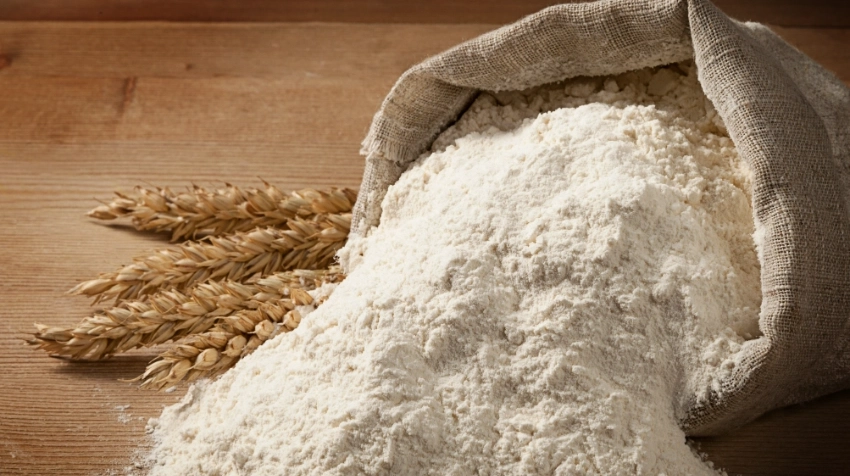The flour industry plays a pivotal role in food production, supplying essential ingredients for a wide range of products, from bread to pastries. As consumers continue to demand higher quality and consistency, advanced quality control measures are becoming more vital than ever. One innovative solution is the IAT NIR Analyzer, developed by IAT (Singapore) Technology. This cutting-edge technology offers a comprehensive approach to monitoring key quality parameters in flour, enabling manufacturers to consistently meet and exceed industry standards.

Understanding the Role of Quality Control in the Flour Industry
Quality control in the flour industry is vital for several key reasons. Primarily, it ensures that the flour meets specific standards for moisture, ash, protein, gluten, and water absorption rate, all of which have a direct impact on baking performance and the overall quality of the final product. For example, high moisture content can lead to spoilage, while insufficient protein levels can weaken dough strength.
Additionally, in a highly competitive market, consistency and quality set brand apart. Therefore, implementing robust quality control measures are not just a regulatory requirement but also a strategic necessity for flour manufacturers, helping them maintain a competitive edge and build consumer trust.
Key Features of the IAT NIR Analyzer
1. Comprehensive Detection: The IAT NIR Analyzer offers multi-parameter analysis, accurately measuring moisture, ash, protein, gluten, and water absorption rate in flour. This thorough detection is vital for ensuring the flour meets specific quality across various applications.
2. Rapid Results: Traditional laboratory testing methods can be slow, often taking hours or even days to deliver outcomes. In contrast, the IAT NIR Analyzer provides immediate feedback, allowing manufacturers to make real-time adjustments to their processes.
3. Non-Destructive Testing: Unlike some testing methods that require sample destruction, the IAT NIR Analyzer enables continuous monitoring without compromising the integrity of the flour. This capability is particularly beneficial for maintaining production efficiency.
4. User-Friendly Interface: The IAT NIR Analyzer is designed for ease of use, featuring intuitive interface that allows operators to quickly familiarize themselves with the device. This minimizes training time and maximizes productivity.
5. Data Management: The analyzer is equipped with advanced data management capabilities, enabling manufacturers to monitor quality trends over time. This feature is invaluable for detecting potential issues before they escalate, ensuring consistent product quality.
The Impact of IAT NIR Analyzer on Quality Control
The introduction of the IAT NIR Analyzer has revolutionized quality control in the flour industry. By providing real-time data on critical quality parameters, manufacturers can make proactive adjustments to their production processes. This not only elevates product quality but also reduces waste and improves overall operational efficiency.
Enhancing Product Consistency
One of the primary benefits of using the IAT NIR Analyzer is its ability to enhance product consistency. With precise measurements of moisture, protein, and gluten levels, manufacturers can ensure that each batch of flour adheres to the same high standards. This level of consistency is essential for bakers and food producers who rely on uniform flour quality for their products’ success.
Reducing Waste and Costs
In the flour industry, waste often arises from over-processing or producing inferior products. The IAT NIR Analyzer addresses this issue by offering instant feedback on flour quality. If a batch falls short of specifications, real-time adjustments can be made, minimizing the the risk of waste. This not only saves costs but also contributes to more sustainable production practices.
Improving Customer Satisfaction
Ultimately, the goal of any quality control measure is to improve customer satisfaction. By consistently delivering flour that meets the highest quality standards, manufacturers can build and maintain trust with their customers. Reliable quality leads to superior baking results, which strengthens customer loyalty and encourages repeat business.
Conclusion
As the flour industry evolves, the demand for advanced quality control measures will only increase. The IAT NIR Analyzer from IAT (Singapore) Technology marks a major advancement in this field. By offering rapid, accurate, and non-destructive testing of key flour quality parameters, the analyzer empowers manufacturers to boost product consistency, reduce waste, and enhance customer satisfaction.
As more flour manufacturers adopt this technology, we can expect to see a transformation in quality control practices, benefiting both producers and consumers. With innovations like the IAT NIR Analyzer, the future of the flour industry looks brighter, thanks to advancements in technology.






